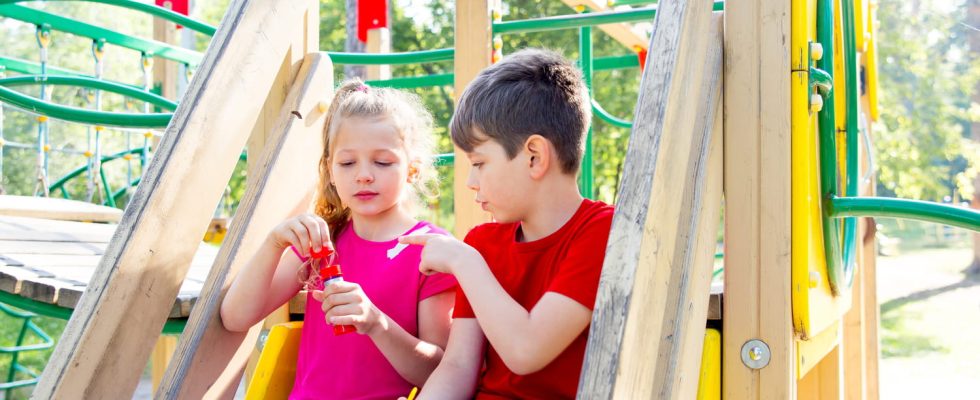A recurring and almost banal practice in schoolyards creates a real problem for many children, especially little girls.
Children don’t talk much to their parents about what they do in class and even less on the playground. For several years, however, work by sociologists has been carried out in schoolyards to try to understand what happens during play and relaxation times, in particular to identify what could generate inequalities between girls and boys.
The work carried out by Édith Maruéjouls, a geographer specializing in gender issues, has recently shown how seemingly innocuous games influence the future of girls and boys. In her work “Making I(u) Equal”, she makes the following observation: from early childhood, children often group themselves according to their gender. The boys position themselves in the center of the space, keeping physical, sporting and noisy activities for themselves, while the girls are relegated to the sides, in divided areas and in discretion.
Put more simply, the boys play football or a similar activity in the center of the playground, where we show off a lot, we impress, we perform, we talk about ourselves. The girls, on the other hand, are in corners, playing skipping rope for example. “When we say “girls’ games”, there is the question of the equal value of what they wear compared to boys. Basically, to discuss or play mom and dad, get together on a step or in the corners, that’s enough. It raises a question of centrality but also of legitimacy of their games”, explained Édith Maruéjouls recently in Ouest-France.
This separation in the courtyard creates a symbolic separation between girls and boys which has repercussions later in society: women are over-represented in care professions (nurses, caregivers, home help, early childhood, etc.), often financially devalued. On the other hand, we find a small proportion of girls in professions where we perform, where we lead, where we are valued by speaking in public.
How to change this? For Édith Maruéjouls, it is crucial to act from an early age to teach children to share space equally by creating common places, thus promoting inclusion and diversity. “The question of freedom is first of all the question of equal freedom. An example, a girl who wants to play football in the playground but who cannot because the boys do not want to, can -are we still talking about a space of freedom?”, she also wondered in Ouest-France, adding: “What causes exclusion is being a girl”.
She highlights the role of parents and teachers in promoting diversity, in particular making children think about their friendships, their games or their birthday parties. The author also offers a reflection on school toilets, suggesting a mixed approach to foster an inclusive and safe environment for all children.
